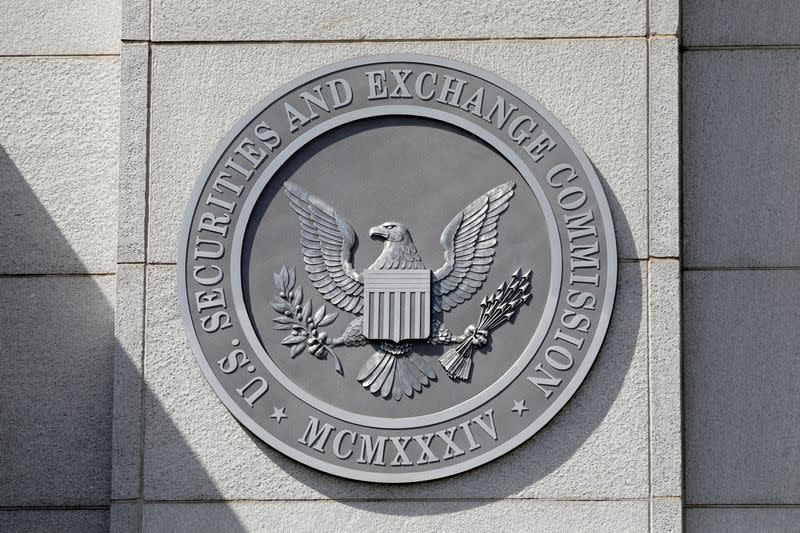US SEC meets to vote on climate rule

By Ross Kerber
(Reuters) -Wall Street's top regulatory body on Wednesday voted 3-2 to adopt rules requiring public companies to disclose certain climate-related risks, in first-of-its-kind regulation that was watered down after an earlier draft sparked two years of debate.
STORY:
COMMENTS:
LESLIE SAMUELRICH, PRESIDENT, GREEN CENTURY FUNDS
“It’s a step forward, but we feel it's too little too late. We wish the SEC had held fast with their proposal to have companies report Scope 3, or indirect, emissions because investors need this data to make informed decisions about how companies are addressing their climate-related risks.
“Companies’ indirect emissions often represent the majority of their total emissions. Vigorous opposition by trade groups, including the U.S. Chamber of Commerce and the American Farm Bureau Federation, has restricted investors’ access to vital information.”
ERICH PICA, PRESIDENT, FRIENDS OF THE EARTH
"SEC gutting its final climate disclosure rule is a massive giveaway to Big Ag and Big Oil, delivering a blow to investors. Amid escalating climate-related financial risks, these rollbacks signify a profound failure to ensure fair, orderly and efficient markets."
"This is a huge miss for the Biden administration. By caving to the Big Ag lobby, SEC allows some of the world’s biggest, most climate-destructive corporations to conceal their massive greenhouse gas footprints."
GREG HOTALING, REGULATORY CONTENT MANAGER, CONFLUENCE
"Lawsuits challenging the rules could very well arise...This could not only impact the rules of course, but also set a more general precedent about the SEC's rulemaking authority for its other initiatives."
"It's worth noting, however, that jurisdictions like the EU, the UK, and even California will continue to impose extensive ESG disclosure requirements affecting many companies. And that many investors and consumers are looking to sustainability-related information regardless of what must be disclosed by law. What this means is that ESG data will remain very relevant globally, and in fact will only increase as that data becomes more accessible through demand and through technological advances.”
BEN CUSHING, CAMPAIGN DIRECTOR, SIERRA CLUB
"Despite some of the significant rollbacks from the proposed version -- which will not help protect investors from climate risks, and are not supported by the law nor the extensive public comments -- the SEC's rulemaking represents a net-positive for investors and our capital markets over the current status quo. This rule will provide investors with much needed information about companies' climate risks, though it is a mistake to allow companies to continue hiding their greenhouse gas emissions and other important risks."
(Reporting by Ross Kerber; Editing by David Gregorio)


